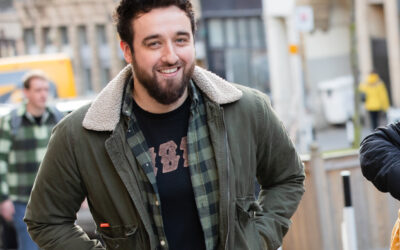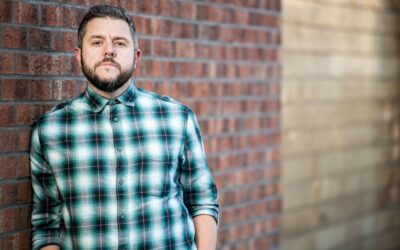Luke Barnett is head of video and photography at for the curious.
Manchester-headquartered communications group Social announced the rebrand of its creative division last year, with for the curious operating as a new dedicated creative consultancy.
Social’s creative arm aims to develop meaningful creative, digital and video content.
Barnett has worked at the likes of ITV and initially joined Social as a video producer in 2020, later being appointed as senior video producer and drone operator.
He moved on to content roles at The Mill Group and Ear to the Ground, before returning to Social in 2022 to join its creative division.
Here, he shared how he landed his job, career tips and advice.
How did you first get into your industry?
After graduating from Salford University I must have sent a million emails to any company working around Manchester looking for work experience. I finally found one called Timeline Television, a MediaCity based post-production and VO facility that offered me a two week work placement. After that they offered me regular freelance work as a runner and I eventually managed to branch out into shows around MediaCity such as Jeremy Kyle, You’ve Been Framed etc.
After a few years in broadcast, I decided to move agency side and spent time working as a videographer, video producer, senior content producer, drone op and head of production among a few others.
What do you love about your job?
Creativity is obviously a very important aspect of my job and its always been first and foremost what’s drawn me to these types of roles. However I also love that it lets me exercise my technical ability and really allowed me to develop my organisational and managerial skillset too.
Being in an agency not only allows you to work with different clients and brands but also allows for that opportunity to broaden your personal abilities too.
Who – or what – has inspired you in your career?
I think for me it’s always been my peers and the people I see and speak to day-to-day. Going through university, broadcast and then agency gives the opportunity to work along alongside loads of incredibly talented people and to see their work and process behind it first-hand gives me motivation to work in mine.
What are the biggest challenges about your job?
I think finding dedicated headspace for the multitude of tasks you need to perform can sometimes be very tricky. Whether it’s a pitch or a pre-production for a shoot or line management etc, They all need their own dedicated space and when things start to overlap, it can be very tricky to make sure everything is getting the attention it deserves.
What skills have been the most crucial to you succeeding in your career so far?
I think having a creative and technical skillset is obviously important but I think people don’t talk nearly enough about the soft skills in the creative industry. Being able to have a conversation with a client or a colleague and effectively communicate what are sometimes very intangible ideas is such a crucial part of what we do.
What was your first salary and what could someone getting into the industry expect to earn nowadays?
My first actual salary was around £15k. I think it depends on whether you’re looking at broadcast or agency work but broadly speaking I would expect at least £20-£22k these days. I’d also keep an eye out for employers offering the living wage, like us. It’s a good indication that they value junior talent.
What education or training would be most useful for someone looking to follow your career path?
I can’t speak for everyone, but learning through experience has been far more helpful than any formal education or training. If you can get yourself onto a shoot, set or edit even just to shadow someone the experience is invaluable. Try to find a mentor who’s been down the path you’re going on and never stop asking them questions.
What advice would you have for someone looking to follow your path?
If you really are passionate about video or photography, always try to make as much content as you can within your own means. Go and use the cheapest camera you can find and make something you can learn from. Find other likeminded individuals and collaborate and see where it takes you.












